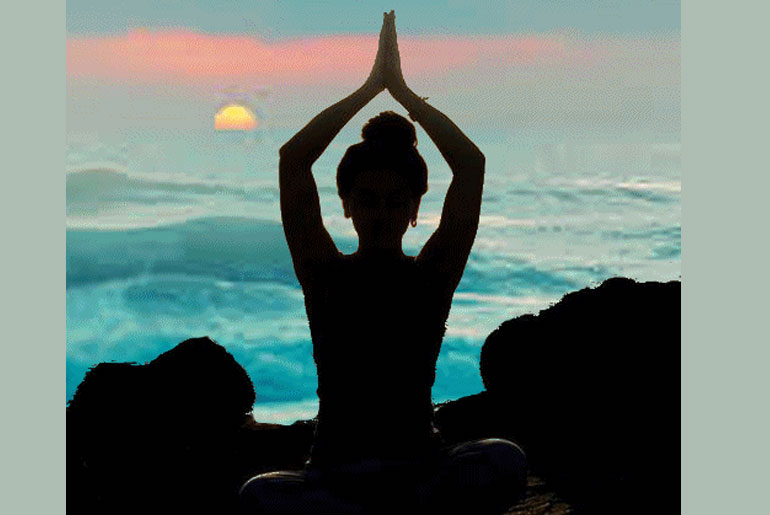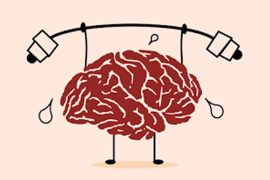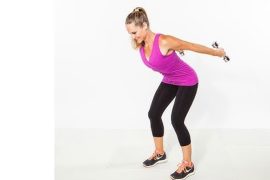Yoga asanas are effective in reducing stress and enhancing focus by promoting relaxation, mindfulness, and mental clarity. Through controlled breathing and mindful movement, yoga helps activate the parasympathetic nervous system, reducing the production of stress hormones like cortisol. Asanas such as Child’s Pose, Downward Dog, and Warrior pose improve blood flow, release tension, and calm the mind. Regular practice of yoga not only alleviates stress but also fosters improved concentration and mental clarity, making it an excellent tool for boosting focus and mental well-being.
Board exams are a stressful time for students, with pressure mounting to perform well. In addition to effective study strategies, incorporating yoga asanas (poses) into daily routines can be an excellent way to reduce stress, enhance focus, and improve overall well-being. Yoga not only helps relax the body but also calms the mind, promoting a state of mental clarity and readiness. Here’s how yoga asanas can aid students during this critical period:
1. Reduction of Stress and Anxiety
Yoga helps reduce the production of stress hormones like cortisol. By incorporating relaxation techniques, students can alleviate the tension that builds up during intense study sessions.
Asana to Try:
- Child’s Pose (Balasana): This restful pose is great for relaxing the body and calming the nervous system. It promotes deep breathing, which helps reduce anxiety and fosters a sense of peace.
- Sukhasana (Easy Pose) with Pranayama: Sitting cross-legged with deep, slow breathing can relieve stress. Focusing on breath during pranayama (breathing exercises) helps calm the mind and lowers anxiety levels.
2. Enhancing Focus and Concentration
Yoga increases mindfulness and brings attention to the present moment, which is essential for improving concentration while studying. This practice can make it easier to stay focused during long study hours, ultimately increasing productivity.
Asana to Try:
- Tree Pose (Vrikshasana): This standing balance pose improves focus by requiring concentration and stability. Holding the pose strengthens the legs and improves mental clarity.
- Dhanurasana (Bow Pose): This pose improves blood circulation to the brain and stimulates focus by engaging multiple muscle groups, increasing mental clarity and alertness.
3. Improved Memory Retention
Regular yoga practice improves brain function, including memory and cognitive abilities. Certain asanas stimulate blood flow to the brain, which can help with retaining information during exam preparation.
Asana to Try:
- Downward Dog (Adho Mukha Svanasana): This pose helps boost blood flow to the brain, enhancing focus and mental alertness, which is crucial for memory retention.
- Viparita Karani (Legs Up the Wall Pose): This restorative pose enhances blood circulation to the brain and aids in mental clarity and relaxation, improving overall concentration.
4. Reducing Physical Tension and Improving Posture
Extended sitting during long study sessions can cause muscle stiffness and discomfort. Yoga helps release physical tension, particularly in areas like the neck, shoulders, and back, which can contribute to physical stress. It also encourages better posture, which can prevent fatigue.
Asana to Try:
- Cat-Cow Pose (Marjaryasana-Bitilasana): This flowing movement helps release tension from the back, neck, and spine, making it ideal for students who spend hours sitting while studying.
- Seated Forward Bend (Paschimottanasana): This pose stretches the hamstrings and lower back, releasing tension and improving flexibility.
5. Improving Breathing and Oxygen Flow
Yoga emphasizes the importance of deep, controlled breathing. Practicing pranayama (breathing exercises) helps improve lung capacity, oxygenates the body, and calms the nervous system. This enhanced breathwork can increase energy levels and focus, essential during exam preparation.
Asana to Try:
- Nadi Shodhana (Alternate Nostril Breathing): This calming pranayama technique reduces stress and anxiety, clears the mind, and helps increase concentration.
- Kapalbhati (Breath of Fire): This energizing technique helps oxygenate the body, reduce fatigue, and boost mental clarity, helping students stay alert during study sessions.
6. Promoting Restful Sleep
Adequate rest is essential for memory consolidation and cognitive function, both of which are critical during exam periods. Yoga encourages relaxation and promotes restful sleep, ensuring students are well-rested and ready to tackle their exams with focus and energy.
Asana to Try:
- Corpse Pose (Savasana): This final relaxation pose helps the body and mind unwind, making it easier to achieve a peaceful state before sleep.
- Reclining Bound Angle Pose (Supta Baddha Konasana): This restorative pose encourages deep relaxation, releasing tension and promoting better sleep quality.
7. Boosting Confidence and Calmness
Yoga practice helps to instill a sense of calm and builds confidence by encouraging self-awareness and mindfulness. As students develop a positive relationship with their bodies and minds, they are better able to approach exams with a calm and focused mindset.
Asana to Try:
- Warrior Poses (Virabhadrasana I, II, III): These empowering poses increase strength, confidence, and mental resilience, helping students face challenges with a calm attitude.Yoga asanas offer students a holistic approach to managing stress, enhancing concentration, improving memory, and promoting relaxation during board exam preparations. By incorporating regular yoga practice and pranayama into their daily routine, students can improve their physical and mental well-being, resulting in better performance and a more balanced approach to exam stress. Focus on consistency, and take small breaks throughout the day to incorporate these calming practices to ensure you’re in top form for your board exams.
Disclaimer:
The information contained in this article is for educational and informational purposes only and is not intended as a health advice. We would ask you to consult a qualified professional or medical expert to gain additional knowledge before you choose to consume any product or perform any exercise.








